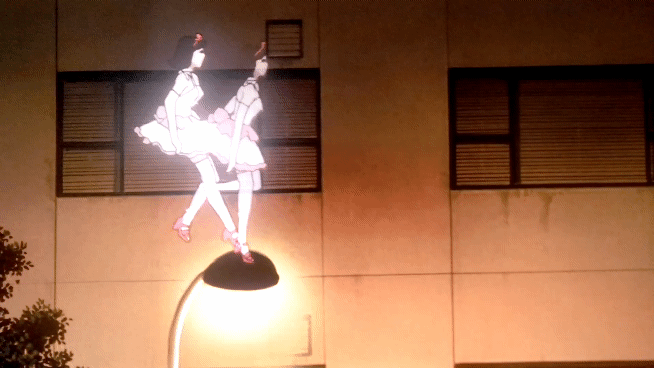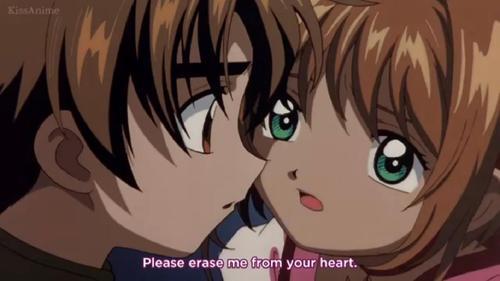What makes a Madhouse movie timeless? Passionate direction is the driving force behind these movies, and eight directors brought their talent to Madhouse creating award winners. The first four, Satoshi Kon, Morio Asaka, Rintaro, and Masayuki Kojima, adapted manga and novels. Or they produced original stories and brought them to life. Their different styles all have a human touch. These are the kinds of movies that win awards and stick with you long after viewing.
Perfect Blue

Satoshi Kon’s career ended far too soon, yet his work was of the highest grade. His directorial debut was 1997’s Perfect Blue. Based on Takeuchi Yoshikazu’s novel Perfect Blue Complete Metamorphosis, Kon’s version is a timeless psychological thriller. This is my favorite film, either live-action or animated. Perfect Blue is the story of B-grade J-pop idol Mima Kirigoe, who leaves her group to pursue acting. She discovers a stalker, and the people she works with are being murdered. However, as more people died, Mima’s belief she was the killer grew. Kon’s twisting of reality keeps you guessing until the very end. As the winner of nine awards, the most notable being 1997’s Fantasia International Film Festival, the Official Selection at the 48th Berlin International Film Festival, and Best Animation at Fantasporto 1998, Perfect Blue has left a legacy. Director Darren Aronofsky, a fan of Satoshi Kon, has paid homages to him in his films Requiem for A Dream and Black Swan. Requiem for a Dream features a shot-by-shot remake of Perfect Blue’s bathtub scene. Black Swan’s ending fight scene is thematically on par with Perfect Blue, as both use mirrors to reveal the truth. Perfect Blue, with MD Geist, The Humanoid, and Urotsukidoji: Legend of the Overfiend, appeared in an interlude video on Madonna’s 2001 Drowned World Tour.
Millennium Actress
Satoshi Kon’s second award-winning film is Millennium Actress. The original work by Kon tells the story of retired actress Chiyoko Fujiwara, who is being interviewed for a documentary. The lines of reality blur as Chiyoko and her interviewers travel throughout her movies and Japanese film history to tell the story of what drove her career. This is another favorite of mine, not only for the animation but for the music. Musician Susumu Hirasawa (Berserk) worked on the soundtrack, making the great work even more incredible. That is easy to see, with eight awards and four Annie Awards nominations. The film won awards at the 5th Japan Media Arts Festival Grand Prize in Animation (where it tied with Spirited Away). It also won the Noburou Oofuji Award from the 57th Annual Mainichi Film Awards and the Artistic Innovation Award at the 6th Fantasia International Film Festival.
Tokyo Godfathers
Every year there are twenty-four hours of A Christmas Story, but I’d rather have twenty-four hours of Tokyo Godfathers. Satoshi Kon’s third movie is also a Christmas movie. This 2003 dark comedy is a slight departure from Kon’s usual surrealism. Although coincidence is the gift that keeps on giving in this movie. Miracles brought on by coincidence spur the main characters, three homeless people, on a quest to find the parents who abandoned their baby in the trash. Tokyo Godfather’s story of an unconventional family, and the ties that bind it together, is universal. That’s reflected in its ten awards, such as Best Direction and Best Picture at the 2004 Tokyo International Anime Fair. This isn’t an award, but Roger Ebert gave the movie three out of four stars.
Paprika
When I saw the first Inception trailer in 2010, I thought, “That looks good, but I’ve seen Paprika.” To this day, I still haven’t watched it. In 2006 Satoshi Kon’s last film, Paprika, premiered. Based on Yasutaka Tsutsui’s novel, Paprika is about dreams and the beauties and dangers that come with sharing and realizing them. Dream analyst Paprika uses an experimental device called the DC Mini to enter dreams and help people with recurring nightmares. After the theft of one device, people’s dreams fuse with reality, and they lose themselves in endless dreams. Paprika and her friends search for the dream terrorist and a way to stop them before the worlds of dreams and reality become one. Paprika has won several awards, including Portugal’s 2007 Fantasporto Critics Award, the Best Picture Award at the 12th Animation Kobe Awards, and the Feature Film Award for Best Animation at the Newport Beach Film Festival in California. Paprika also ranked number twenty on Time Magazine’s Top 25 Animated Film list.
Cardcaptor Sakura Movies
Morio Asaka has directed the Cardcaptor Sakura series since the beginning, including the current Clear Card series. Two movies complement the Cardcaptor Sakura TV series. Cardcaptor Sakura: The Movie, Asaka’s feature film debut, takes place between the first and second seasons. Sakura has a recurring dream that a woman’s tenne, or heavenly raiment, is drowning her. The tenne is the flowing scarf-like cloth you see on Buddhist statues and Aqua from Konosuba. Sakura and her friends take a trip to Hong Kong, where she discovers the source of her nightmares. The last movie, Cardcaptor Sakura Movie 2: The Sealed Card, serves as an ending to the original series. Sakura must capture the final Clow Card, “Nothing,“ before her hometown of Tomoeda and its inhabitants disappear. But the price for sealing this card is Sakura’s love for Syaoran Li. Both timeless movies won the Best Picture Award at the Kobe Animation Awards, the first movie in 1999 at the fourth Kobe Awards, and 2000 at the fifth.
Metropolis
2001’s Metropolis is a beautiful marriage of Fritz Lang’s film and Osamu Tezuka’s manga of the same name. Directed by Rintaro and written by Katsuhiro Otomo, this version of Metropolis revolves around a robot girl named Tima. After an attempt to destroy her, she is befriended by Kenichi, a detective’s nephew. As Kenichi and Tima become close, both are unaware of her true nature, and a revolt occurs between humans and robots as the social hierarchy of the city crumbles. And Tima has the power to save or destroy everything. Nominated for several awards, including a Saturn, Metropolis is a Notable Entry Domestic Feature Film winner at the Tokyo Anime Awards. The film also received 4/4 stars and a glowing review from Roger Ebert. One of my favorite scenes is at the climax when Ray Charles’s song, “I Can’t Stop Loving You,” plays as Kenichi is trying to save Tima. It brings out the beauty in that tragic moment. That’s what makes this movie timeless for me.
Yona Yona Penguin
Madhouse’s first 3D CGI film is a 2009 family film directed by Rintaro. Yona Yona Penguin is about a penguin-loving girl named Coco, who dresses like a penguin. Coco finds a robotic cat that leads her to a mysterious penguin-themed store and reveals it’s a goblin named Chaley. He needs her help to save his world from an evil being because she is the chosen one. Yona Yona Penguin won several international awards. It was an Official Selection and had a special screening at the 66th Venice Film Festival. Also, it was the official opening film for the first Bangkok International Animation Film Festival. And it received the Audience Award for Best Animated Feature for Children at the 29th Brussels International Fantastic Film Festival.
The Perfect World of Kai
Another work based on a Makoto Isshiki manga is The Perfect World of Kai or The Piano Forest (Piano no Mori). Elementary school student Kai Ichinose secretly plays a forgotten piano in the forest until being discovered by Shuhei Amamiya, a new classmate. Shuhei realizes Kai is the only one who can play the piano and seeks to help him become a better pianist. They both have to deal with school problems, such as bullies. Madhouse animated the movie version in 2007 with Masayuki Kojima as director. The human drama is his specialty. Kojima is currently directing Made In Abyss, while his previous work includes Monster. This timeless movie received the Excellent Animation of the Year Award from The Japan Academy Film Prize.
Movies That Move You

These first four directors have produced timeless award-winning movies that explore human nature. From Perfect Blue’s psychological break to Cardcaptor Sakura’s romance, these movies exhibit a depth that outshines others in their genre. They are nostalgic and one-of-a-kind and are rare beauties in the anime world.
In Part Two of Madhouse: Timeless Movies, we’ll examine the last four directors and their award-winning movies.















